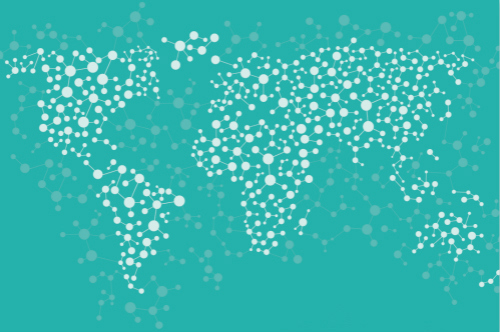
Message from Ms. Audrey Azoulay, Director-General of UNESCO, on the Occasion of World Science Day for Peace and Development文章源自英文巴士-https://www.en84.com/6093.html
联合国教科文组织总干事奥德蕾·阿祖莱争取和平与发展世界科学日致辞文章源自英文巴士-https://www.en84.com/6093.html
文章源自英文巴士-https://www.en84.com/6093.html
10 November 2018文章源自英文巴士-https://www.en84.com/6093.html
2018年11月10日文章源自英文巴士-https://www.en84.com/6093.html
文章源自英文巴士-https://www.en84.com/6093.html
This year, the theme of World Science Day for Peace and Development is “Science: a human right”. The celebration of the seventieth anniversary of the Universal Declaration of Human Rights is an ideal opportunity to reaffirm the essential right of universal access to science and to gauge how much remains to be done to achieve this.文章源自英文巴士-https://www.en84.com/6093.html
文章源自英文巴士-https://www.en84.com/6093.html
今年,争取和平与发展世界科学日的主题是“科学:一项人权”。庆祝《世界人权宣言》问世70周年,为重申普遍获得科学知识这一基本权利并衡量实现这一目标仍需付出哪些努力提供了契机。文章源自英文巴士-https://www.en84.com/6093.html
文章源自英文巴士-https://www.en84.com/6093.html
The astonishing progress made by science in recent decades has changed our lives. Science and its countless applications now condition all aspects of human life. The resulting innovations are an opportunity for the development of our societies. They are improving our well-being, facilitating daily life and pushing back borders that seemed immutable in the fields of medicine, transportation, communication and knowledge-sharing. They are an engine of growth and wealth.
近几十年来科学取得的惊人进步使我们的生活条件发生了巨大变化。科学及其无限广泛的应用决定了人类生活的方方面面。科学带来的创新是社会发展的良机:科学改善了人类福祉,便利了日常生活,打通了医学、交通、传播和知识共享等方面看似不可改变的界限。科学创新是发展和财富的动力。
However, because science today is the beneficiary of the human intellect which has been seeking, exploring and inventing for centuries and millennia, it belongs to all humankind, it is a common good whose fruits must be of benefit to all. The Recommendation on Science and Scientific Researchers published in 2017 by UNESCO reminded States and all those concerned of the conditions that need to be met so that science might be a factor of peace and sustainable development, which include ensuring excellent training for researchers, enabling the free flow of knowledge and fostering international cooperation.
今天的科学凝聚了人类千百年来不断追求、探索、创造所体现的智慧,因此科学属于全人类,这一共同财产的成果必须惠及所有人。联合国教科文组织2017年发布的《关于科学和科学研究人员的建议书》提醒各国和所有相关各方需要满足各种条件,例如保证研究人员英才培训、允许知识自由流动、鼓励国际合作等,才能使科学成为推动和平与可持续发展的因素。
Issues of inclusion and ethics also lie at the heart of the Recommendation. Public policies should foster greater inclusion of groups of persons currently in the minority in the scientific community. Women in particular are under-represented in what are known as the STEM fields – science, technology, engineering and mathematics – and account for only 30% of researchers in the world today.
包容和伦理问题也是《建议书》的核心。公共政策应当鼓励目前科学界的少数群体更多地融入。女性在STEM(科学、技术、工程、数学)领域所占比例尤其不足,仅占当今世界研究人员的30%。
With regard to ethical considerations, they are essential in order to try to manage the frenetic advances of science. The technological revolution is currently redrawing the borders of what it means to be human. Homo sapiens, characterized by faculties of intelligence, stands at the threshold of a new era, where those faculties, now partially externalized, will attain hitherto unimaginable capacities. It is our responsibility to ensure that the promises we glimpse of this new technological order are in harmony with the universal rights we have given ourselves.
伦理因素对于控制科学的过度发展也至关重要。技术革命正在重新划定人类的疆界。以智能禀赋为特征的智人正站在新时代的门口,这些已经部分外化的禀赋将转变为迄今难以想象的能力。确保这一新的技术秩序所初现的前景不会有违于我们赋予自身的普遍权利,这正是我们的责任所在。
俄文、法文、西文、阿文版:https://pan.baidu.com/s/1SL8auKzD3mPVYCBICEwLqA

